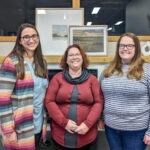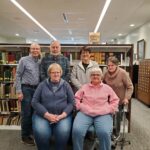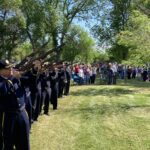

One of my childhood memories is getting off the school bus and watching Star Trek reruns on one of the three channels we had at the time.
I would later watch a few of the Star Trek movies, where I was introduced to the training exercise of the Kobayashi Maru. In this fictional exercise, Captain Kirk is given a no-win scenario and only finds a way to beat it by reprogramming an entire system.
This is the best metaphor I can think of when describing how our volunteers decide the agencies and programs funded through the annual United Way Campaign. In the spring, close to 30 volunteers will help determine where hundreds of thousands of dollars will be used in our region.
The process for determining funding requires a site visit and a second meeting focusing on financials and the organization’s needs. This is a careful dance between the organization’s needs and the United Way’s ability to raise enough funds. Currently, the United Way funds 32 programs in our region with allocations that range from $800 to over $100,000.
Imagine having a limited amount of resources (money) and having a huge number of great agencies and programs vying for those resources. The answer may seem basic – pick the best ones, but it’s not that simple.
First, the programs that meet minimum qualifications tend to all be incredible organizations focused on doing great work. Second, some programs help hundreds of people, others help far fewer, but the impact is profound for those few. Third, what might be a passion of mine personally might not be the focus of the programs requesting funds but is the passion of someone else. Lastly, do you give a little to many or a lot to a few hoping for the greatest impact? These are the questions volunteers face when deciding how to allocate United Way funds.
United Way allocations volunteer, Lee Keller, explained it well, “You know these organizations and programs are doing good work, but when you sit across the table and hear the passion people have for their program, or see the smile on a child’s face riding a horse, you really understand just how important this process is for everyone involved.”
The Kobayashi Maru conundrum we at United Way face is how to make the greatest impact with a limited amount of funds. This is the task of the United Way allocation volunteers, to make tough decisions knowing what they decide will affect many.
“I wish everyone in our community could go through this process. You would see how much need is out there and the incredible job people are doing in our local non-profits,” said United Way allocations volunteer Nancy Schmidt. // –Aaron Schultz, Executive Director of the United Way
To learn more about the United Way allocations process or how to volunteer, please contact the United Way office at 605-225-0212.















